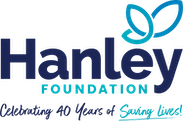Alcoholism, drug addiction, and substance use disorders lead to – and flourish in – isolation and secrecy. But, as people with addiction are forced to quarantine with their loved one, signs of substance use that may have been hidden from view come to the forefront. Substance use is often the central organizing principle of a person’s life, and this does not stop when liquor stores close, drugs are less accessible, or social distancing orders are put into effect. Friends and family who do not share the addiction may begin to question their loved one’s actions and lead to a crucial moment of realization about their loved one’s mental health. Today we will look at some of the behaviors you may recognize and address the vital question: “Should I still help my loved one seek treatment during COVID-19 pandemic?”
Recognizing Addiction in Your Loved One
Recognizing an addiction problem in someone you love can be harder than it seems. The American Society of Addiction Medicine (ASAM) defines addiction as a chronic disease that affects the brain’s reward, motivation, and memory functions. Someone with an addiction will obsess about their substance of (no) choice, and their behavior will reflect this overwhelming desire – even amid a national health crisis.
General signs of addiction include:
- Lack of control while drinking or using
- Inability to stay away from drugs or alcohol
- Abandoning personal commitments or ignoring relationships
- Ignoring potential risk factors, such as sharing needles despite clear consequences
- Withdrawal symptoms
- Tolerance (needing a high dosage to achieve the same effect)
These signs are often linked and can be intertwined. Depending on the intensity of each sign, it may indicate how long the addiction has been going on.
Identifying the initial signs
In the early stages of substance use or milder forms of a substance use disorder, a person might not show prominent signs of a full-blown addiction. These behaviors may become more easily recognizable when you spend the entire day with a person.
Some early-stage clues include:
- Experimentation
- A family history of alcoholism or addiction
- Having a “cocktail hour” during normal business hours
- Placing oneself in situations where the substance or activity is present, including avoiding social distancing restrictions in an attempt to find drugs or alcohol
- Binging or lack of control with signs of little to no remorse after
Although behaviors such as drinking seem to be socially common, it is crucial to determine if the underlying cause is an experimental phase, form of stress management, or something greater. A true substance use disorder, if left untreated, can develop into the debilitating mental health disorder of addiction. If you begin to notice some of these signs, reaching out to a mental health professional can be a necessary first step toward recovery for your loved one.
Changes in personality or behavior
As substance use progresses, what might seem infrequent at first can rapidly develop into something more noticeable. Over time, a person with addiction will most likely exhibit extensive personality or behavioral changes that may be more noticeable.
Telltale signs include:
- Making frequent trips to grocery stores, pharmacies, or “friends” to obtain more alcohol or drugs
- A lack of interest in important hobbies or activities
- Avoiding loved ones, even if by shutting themselves in another room
- Reacting negatively to loved ones and those closest to them
- Hostile outbursts
- Risk-taking behaviors, especially to get alcohol or drugs during shelter in place orders
- Ignoring the negative consequences of their actions
- Distinct changes in sleeping patterns that result in chronic fatigue
- Increased secrecy, such as lying about the amount of substance used
As the healthcare crisis forces people close quarters, hiding an addiction becomes increasingly difficult. You may notice your loved one’s mental health deteriorate as the days stretch out. An increase in unhealthy or isolative behaviors – even within the home itself – can become the norm. Watch for these changes an prepare to take action.
Why you should consider treatment during COVID-19:
- People with substance use disorder often have compromised immune systems, making you at greater risk for contracting other illnesses, including coronavirus.
- Detoxing under medical supervision is the safest thing you can do for yourself or someone you love. Detoxing without medical supervision can put you at greater risk than COVID-19.
- Addiction can manifest during times of isolation. People with substance use disorders and their families need a healthcare facility that is committed to providing a safe environment.


